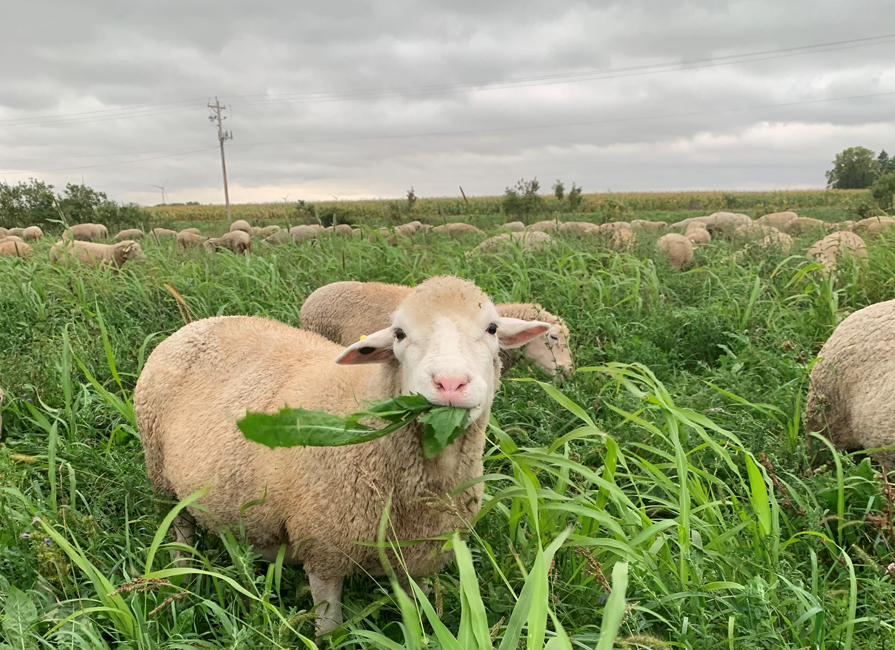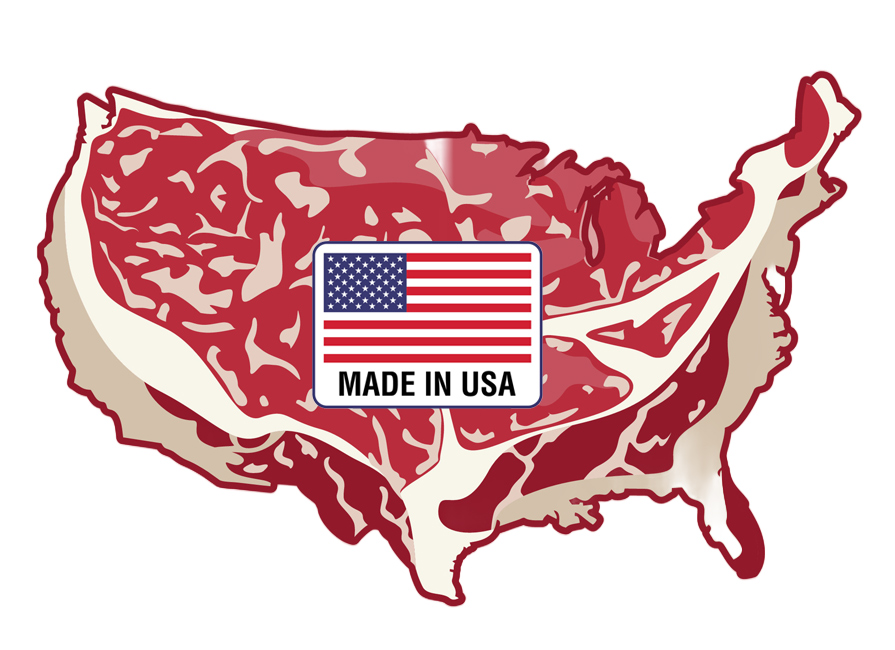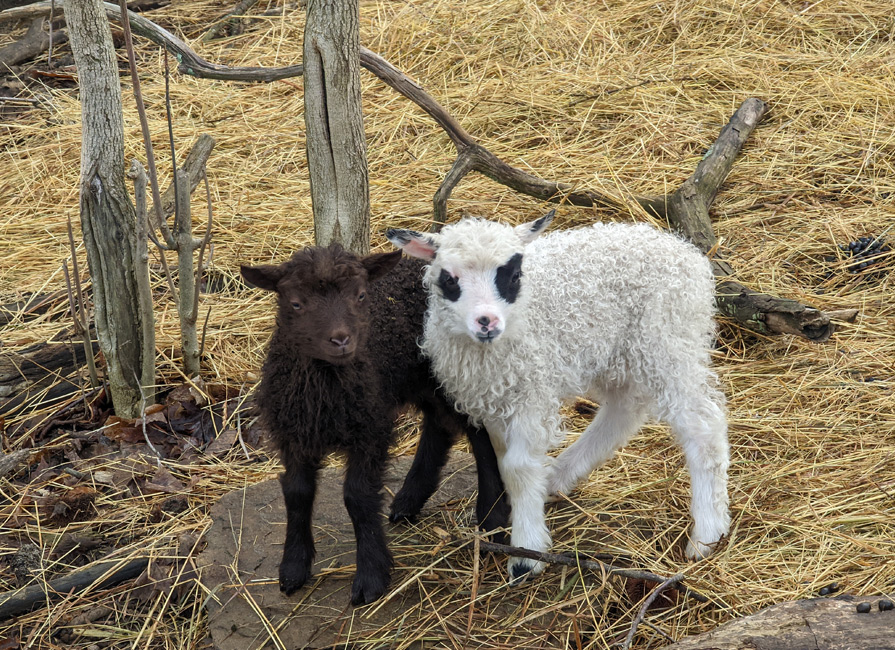Wendy Johnson and Johnny Rafkin own Jóia Food Farm near Charles City in northeast Iowa,…
Cargill’s Turkey is Just the Tip of the Iceberg
 How many more lives must be lost or irreversibly damaged before we finally accept the fact that industrialized farming is killing us?
How many more lives must be lost or irreversibly damaged before we finally accept the fact that industrialized farming is killing us?
On July 29, the U.S. Department for Agriculture’s (USDA) Food Safety Inspection Service (FSIS) announced a nationwide outbreak of a deadly strain of Salmonella food poisoning that is resistant to multiple antibiotics. According to the FSIS, the cases of Salmonella Heidelberg were associated with the use and consumption of ground turkey. No supplier or source of the outbreak was provided. No names, no brands, no source – just advice on cooking and handling meat properly.
Then on August 3, the multinational food monolith Cargill announced the largest ever Class I recall of tainted meat. In a press release Cargill stated that based on information from public health officials the company was ”voluntarily” recalling 36 million pounds of fresh and frozen ground turkey produced over a seven month period beginning in February 2011 at one of their meat processing facilities at Springdale, Arkansas. According to a spokesperson, while there was no conclusive proof about the source of the Salmonella Heidelberg contamination, Cargill was recalling the meat out of “concern for what has happened, and our desire to do what is right for our consumers and customers.” Consumers were urged to return specific fresh and ground turkey products. Hidden in the list of recalled products are 40-pound chubs (catering packages) of ground turkey. These chubs are used in the food service industry and combined with other food products—and thus, presumably, are now well beyond the reach of this recall. Processing at the Arkansas plant was also suspended, although production at Cargill’s four other meat processing plants would continue unaffected.
So far, the contamination has resulted in one death in California and at least 79 illnesses across 26 states. According to reports, it appears the outbreak “officially” began in March 2011, when a growing number of cases of Salmonella Heidelberg were noted. However, the FSIS didn’t issue a public warning until July 29, and even then this was a broad statement about potential links with ground turkey. Questions are already being asked about the significant time lag between the March detection of the spike in cases, the FSIS announcement in late July, and Cargill’s voluntary withdrawal in early August. But I have far graver concerns about this outbreak.
Cargill’s statement read, “It is regrettable that people may have become ill from eating one of our ground turkey products and, for anyone who did, we are truly sorry. We go to great lengths to ensure the food we produce is safe and we fully understand that people expect to be able to consume safe food, each serving, every time.” But these are hollow words indeed; for in almost the same breath, Cargill abdicated responsibility saying, “We all need to remember bacteria is everywhere, and we must properly handle and prepare fresh foods wherever they are served.” The American Meat Institute has also leapt to Cargill’s defense, reassuring U.S. consumers that the turkey supply is safe, especially if standardized safe handling and cooking procedures are followed.
As a consumer I can’t help but find this insulting. The safe handling instructions should be there to protect the consumer – not the multinational corporation. Safe handling instructions are meant to be common sense guidelines for consumer safety, but have now been co-opted as the fail-safe for appalling production practices. While I am the first to accept that good food hygiene is important when handling raw meat and that bacteria are ubiquitous in our environment, please forgive me for screaming about the enormous elephant that is running riot round the room. My grave concern is that this outbreak is yet another stark warning that we are on the verge of something very scary indeed: A world where antibiotics will no longer work, and where common bacterial diseases will once again kill unabated, returning us to the medical equivalent of the 18th century.
While any outbreak of food poisoning is horrific, and the immediate focus must be to treat those affected and identify the source, few people seem to be discussing the larger public health issue: this particular strain of Salmonella is resistant to multiple antibiotics. Scientists around the world link this resistance to years of misuse of medicinally important antibiotics by the intensive farming industry. Virtually all intensively farmed animals in the U.S. receive low levels of antibiotics throughout their lives as growth promoters to help maximize production. While this lowers the price tag on industrial protein, the practice encourages bacteria to quickly become resistant to antibiotics – the same antibiotics we use to treat ourselves. In fact, some dangerous bacteria are now resistant to multiple antibiotics. This means that when we get infected, there are fewer and fewer options for treatment. And we are fast running out of options altogether.
On the same day that the FSIS officially announced the outbreak of multi-antibiotic resistant Salmonella Heidelberg, a paper published in The Journal of Infectious Diseases warned of the discovery of yet another (and separate) multidrug-resistant strain of Salmonella, Salmonella Kentucky, which has a high-level resistance to a number of medicines, including a key antibiotic, ciprofloxacin. Ciprofloxacin is one of the last remaining antibiotics that can still combat severe cases of Salmonella in humans. The authors suggest this new strain is most likely due to the inappropriate use of a group of antibiotics called fluoroquinolones (which include ciprofloxacin) in poultry production in Nigeria and Morocco, and call for urgent global action to limit its spread.
This all comes hot on the heels of the deadly outbreak of E. coli O104:H4 earlier this summer in Europe, which left at least 52 dead and over 4,000 people sickened. Again, what particularly concerned scientists was that the E. coli O104:H4 strain was resistant to several key antibiotics, and the consensus is that the misuse of antibiotics in intensive livestock farming systems was to blame.
In early June 2011, a paper from Cambridge University scientists in the Lancet Infectious Diseases journal confirmed the emergence of a new strain of methicillin-resistant Staphylococcus aureus (MRSA) in British dairy cows, which can also cause life-threatening illness in humans. Once again, the scientific consensus is that the routine use of antibiotics in dairy farming is to blame for this highly dangerous new strain.
Urgent pleas to address this issue are mounting – this is a scientifically grounded concern that is recognized as a serious public health threat throughout the world. The World Health Organization (WHO) has been warning for years that the emergence of antibiotic resistant bacteria is one of the gravest threats known to human health. In recognition of this threat, on World Health Day 2011, which was themed “Antimicrobial resistance: no action today, no cure tomorrow,” the WHO introduced a six-point policy package to combat the spread of antimicrobial resistance. Among the key targets was the urgent need to regulate the use of antibiotic medicines, including in animal husbandry, and to reduce the routine use of vital antibiotics in food-producing animals. The message cannot be any clearer.
I hate to be the voice of doom and gloom, but the advice of “cook it properly and everything will be OK” just doesn’t cut it. A report from the USDA’s Office of the Inspector General points out that while cooking meat properly can destroy pathogens such as E. coli and Salmonella, no amount of cooking will destroy antibiotics and other residues in meat. In some cases, heat may actually break antibiotic residues down into more harmful components. So I think I’ll pass on that double turkey burger with Salmonella to go – even if it has been grilled to a crisp.
The point is that the likes of Cargill and Co. need to clean up their act. Our farming industry is already five years behind the European Union, 15 years behind Denmark and 25 years behind Sweden in banning non-therapeutic uses of medically important antibiotics in farming. The U.S. intensive farming lobby claims that such a ban would devastate U.S. farming and dramatically increase food costs. But European farmers have survived, and the changes have not reduced efficiency of meat production nor directly increased the cost of food. In fact, one Danish study shows that the ban led to lower mortality and higher growth rates in pig farming.
All this leads me to ask: is cheap meat really worth it? The gravity of the threat we face cannot be overstated – we are literally about to lose one of the most important medical innovations of our time. We need to act and we need to act NOW. I urge you to support Congresswoman Louise Slaughter in her drive to introduce The Preservation of Antibiotics for Medical Treatment Act (PAMTA), which seeks to limit the overuse of antibiotics in U.S. livestock farming so that these lifesaving drugs will remain effective in the treatment of human illnesses. Surely preserving the usefulness of vital medicines that we all depend upon is more important than eating cheap, tainted meat and short-term corporate profits?



